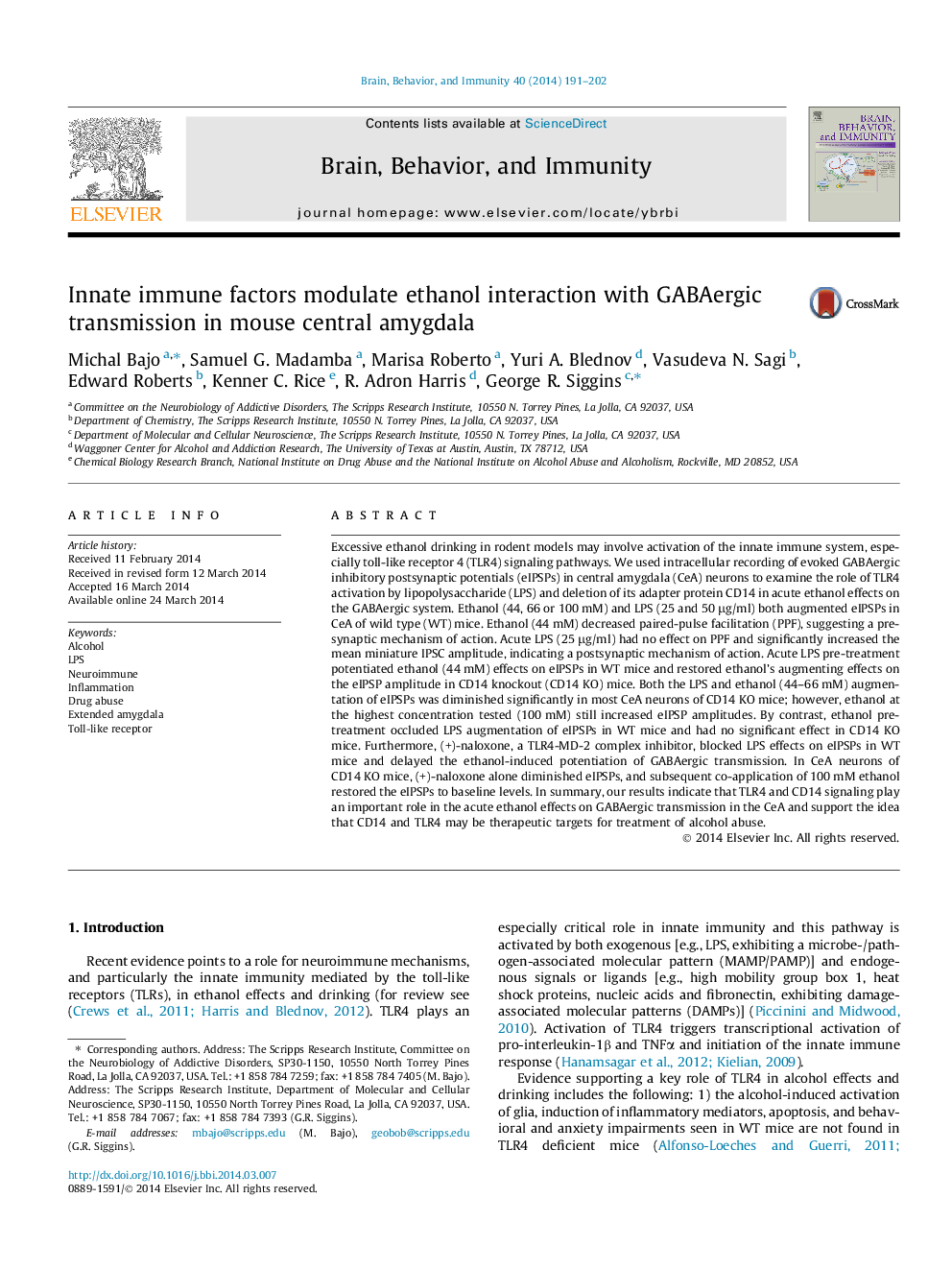| کد مقاله | کد نشریه | سال انتشار | مقاله انگلیسی | نسخه تمام متن |
|---|---|---|---|---|
| 921979 | 1473927 | 2014 | 12 صفحه PDF | دانلود رایگان |

Excessive ethanol drinking in rodent models may involve activation of the innate immune system, especially toll-like receptor 4 (TLR4) signaling pathways. We used intracellular recording of evoked GABAergic inhibitory postsynaptic potentials (eIPSPs) in central amygdala (CeA) neurons to examine the role of TLR4 activation by lipopolysaccharide (LPS) and deletion of its adapter protein CD14 in acute ethanol effects on the GABAergic system. Ethanol (44, 66 or 100 mM) and LPS (25 and 50 μg/ml) both augmented eIPSPs in CeA of wild type (WT) mice. Ethanol (44 mM) decreased paired-pulse facilitation (PPF), suggesting a presynaptic mechanism of action. Acute LPS (25 μg/ml) had no effect on PPF and significantly increased the mean miniature IPSC amplitude, indicating a postsynaptic mechanism of action. Acute LPS pre-treatment potentiated ethanol (44 mM) effects on eIPSPs in WT mice and restored ethanol’s augmenting effects on the eIPSP amplitude in CD14 knockout (CD14 KO) mice. Both the LPS and ethanol (44–66 mM) augmentation of eIPSPs was diminished significantly in most CeA neurons of CD14 KO mice; however, ethanol at the highest concentration tested (100 mM) still increased eIPSP amplitudes. By contrast, ethanol pre-treatment occluded LPS augmentation of eIPSPs in WT mice and had no significant effect in CD14 KO mice. Furthermore, (+)-naloxone, a TLR4-MD-2 complex inhibitor, blocked LPS effects on eIPSPs in WT mice and delayed the ethanol-induced potentiation of GABAergic transmission. In CeA neurons of CD14 KO mice, (+)-naloxone alone diminished eIPSPs, and subsequent co-application of 100 mM ethanol restored the eIPSPs to baseline levels. In summary, our results indicate that TLR4 and CD14 signaling play an important role in the acute ethanol effects on GABAergic transmission in the CeA and support the idea that CD14 and TLR4 may be therapeutic targets for treatment of alcohol abuse.
Journal: Brain, Behavior, and Immunity - Volume 40, August 2014, Pages 191–202